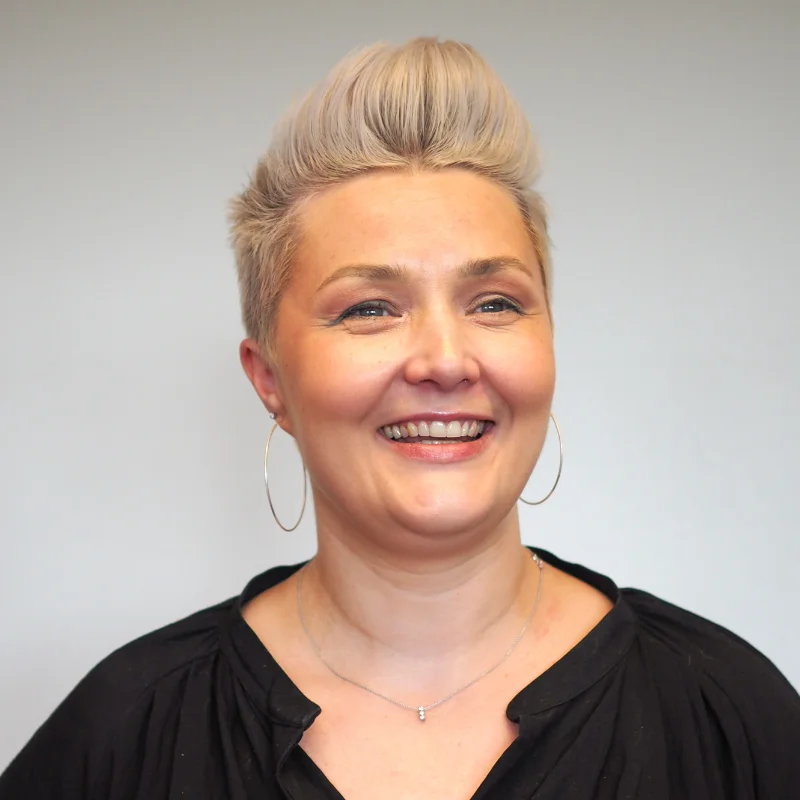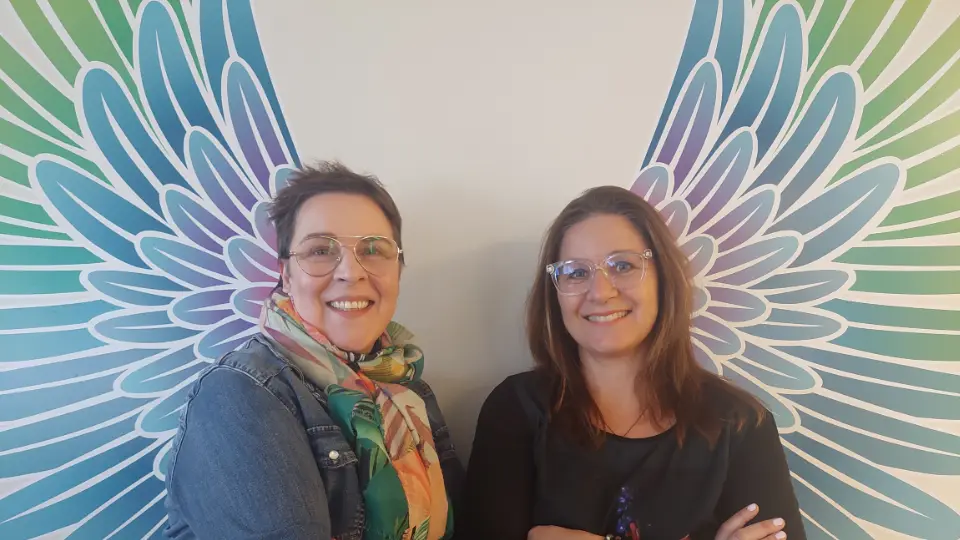The company wanted to serve its customers on new digital channels. Therefore, it needed to change all its systems and most employees had to start working in new ways. This required new skills, but it was unclear which ones, thus making it difficult to send the employees on training courses. This was the situation seven years ago at the Finnish insurance company Turva.

– All of the things that we were accustomed to doing would change because we would have this new system and products for sales, for billing, for compensations, for customer information and for the contact centre and for everything, says Customer Experience Director from Turva, Jenni Holmen.
The management knew that the employees could not achieve the necessary competencies on a course.
– We recognised that the future we were looking at was uncertain. And we did not know the competencies that we were going to need. But we did know that nobody had those competencies on the market. This meant that our future success was – and still is – dependent on our capacity to learn, together as a team, Jenni Holmen says.
Change agents
The conclusion was, that Turva needed to start identifying and building competencies themselves.
– Our strategy is pretty much co-creation with our employees and we wanted to involve them in the system change project in a very early stage so that they would get to know the system and customise it together with the system developers, Jenni Holmen says.
To start the process, Turva took in so-called change agents from all parts of the organisation. Everybody could apply for the task.
– We chose a small amount of people who would enroll first, and then go back to their own units and tell what they have learned and then co-create with their group of peers and come back to the programme and so forth. So, we created this structure of learning, says Jenni Holmen.
She adds:
– That is where we began this journey of co-creation and organisational learning. We created the structures which enable the co-creation of different employees working at different organisational levels.
Success breeds success
As easy as it may sound, there are always difficulties in changing the way an organisation works.
– The process is not always easy. It takes a long time and also a lot of persistence. Not everybody wants it. Some prefer that someone else tell them what to do because that is the traditional way. To some, it feels like a lot to ask them to do their job and in addition they have to do this extra task, Jenni Holmen says.
But after a while things started to work.
– It was definitely hard but what we got right was the psychological safety within the small groups. The people in the group knew that they did not have to have the answers. They just needed to have the questions and then together we would find out, if we have the answers or not, she says.
Later in the process, it was obvious that success breeds success
– The first two big systems change projects went well. Afterwards, we started to be more courageous and then people would get excited, Jenni Holmen says.
The year Turva had the biggest system change it was rewarded with a price as the highest riser in the category “best place to work”.
– I think it was phenomenal because motivation normally goes down when you have big system changes. But our motivation went up because we knew that our people did it. The change was a joint effort.
Employees need to dream
Since the beginning seven years ago, a lot of things have happened.
– We have developed our culture, our leadership, and also our skills in peer-to-peer coaching, Jenni Holmen says.
Turva is now a company based on team learning.
– We try to find everybody’s career dreams. We ask them what their career dreams would look like in a perfect world. And we try to find a joint area between Turva’s strategy and the employees’ career dreams, she explains.
It takes different efforts from different people.
We have what Turva will offer. We have the managers’ role which is to ask the question and to keep the dream alive. And the person’s responsibility is to dream and to continuously learn and to find paths, that are not yet taken, she says.
Jenni Holmen and the management promote that people get new jobs within Turva.
-They do not need to climb up but to move around and find new knowledge on things that we did not use but maybe should use, she says and tells about an employee, who is really interested in robotics. Now he is managing a robotics team. Another employee is really interested in AI. Now he is in charge of AI development.
You have to believe in people
This approach to changing a system and developing the employees’ skills may seem slow. In a way, it is, Jenni Holmen says.
– It is much slower than having an external expert to come and tell how the system works. But in the end, the external expert is not faster because that is only where it all begins for the system. We also have to think of the business, the customers, and the employees. If you do not take the time to involve everybody from the start, you have to do it afterwards. And if you do it afterwards, you will have all the unhappy customers as well as unhappy employees, she says.
One of the most important factors to make the process work is to believe that it is possible, Jenni Holmen says.
– You have to believe in the people, and you have to focus on making the people feel that they are able to make the change. This is important because I think organisations at large, at least in Finland, do not use the full potential of their employees. I believe that the best knowledge of the task is within the employees who do the tasks, not in the management or the leadership teams, she says.
Would you like to learn more about internal competence development?
Regardless of how one chooses to work with internal competence development, there are many paths to take – and much to learn from each other. Therefore, NVL is hosting a conference on Workplace Learning in Malmö on August 27th. The focus is on developing in teams at the workplace, and the information shared is based on a range of Nordic development and research projects conducted over the past ten years. Together, we will work with innovative methods to improve internal competence development – and you will develop a prototype for workplace learning that you can then further develop and implement at your workplace.




